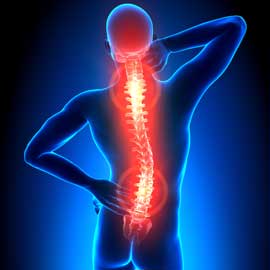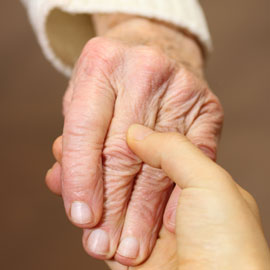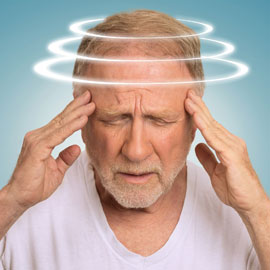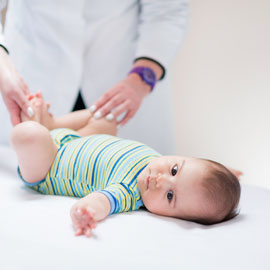Balance and Vertigo Therapy
Balance and Vertigo disturbances are a form of health condition characterized by dizziness, unsteadiness, and symptoms of balance disorder mainly due to alterations of the ear labyrinth. The vestibular system of the ear maintains balance as it interacts with other body organs such as the eyes, bone and joint system, brain, and the nervous system. When the Labyrinth system is altered, balance problems due to the inability of the other organs that depend on it to control the body’s balance. Victims of balance and vertigo, therefore, develop a difficulty in maintaining balance when standing and in severe cases; when walking. Vertigo is illusionary sensations that make individuals feel like their surroundings are moving or whirling accompanied with feelings of blacking out and in some instances, victims lose their breath as a result. The following is a review of balance and vertigo health conditions, their symptoms, the causes of the conditions, the latest and most recommended therapy for balance problems and dizziness.
Balance disturbance is a general health term which is used to describe conditions that bring about abnormal sensation in locomotion and human movement. This means that individuals experience instances of staggering, physical imbalance, nausea, spinning sensations, lightheadedness, frequent blackouts, and body weakness. The balance alterations are as a result of brain and inner ear malfunctions either brought about by other serious health conditions or medication. Balance and vertigo health problems are most likely to affect the daily activities of its victims considering its impact on their psychological and emotional faculties. Balance and Vertigo have been attributed to various causes that affect the mechanical and nerve aspects of the brain and ear where the three balance canals are located. The body depends on the balance canals to relay signals to the brain and maintain body balance.
There are two types of vertigo, namely; peripheral vertigo and central vertigo, classified according to the cause of the health condition. Peripheral vertigo is the most common type caused by the destruction of the mechanical part of the inner ear. The causes of peripheral vertigo include; head injury, labyrinthitis, certain types of medication, and vestibular neuronitis. Loss of balance can occur for a couple of minutes or even hours after a vertigo attack. Severe head injuries can contribute to vertigo and dizziness and in severe instances, the labyrinth can be inflamed. On the other hand, central vertigo arises from malfunctions of part of the brainstem (the lower part of the brain attached to the spinal cord). The causes of central vertigo are associated with migraines, multiple sclerosis, acoustic neuroma, brain tumors, and stroke.
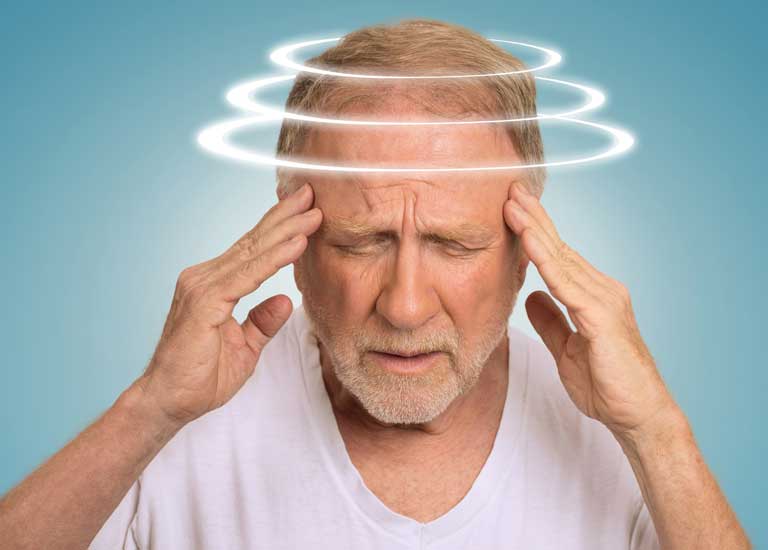
There are two types of vertigo, namely; Peripheral Vertigo and Central Vertigo
The symptoms of balance disorder include blurred vision, confusion and disorientation, faintness, and floating sensation followed by depression and fatigue that may cause discomfort to an individual. When a person has imbalance and Vertigo, it is most probably faulty blood circulation in the ear labyrinthitis. There are many diagnosis therapies for balance and Vertigo including dietary changes depending on the symptoms detected by a doctor. The human body keeps the balance from a series of signals from the brain to various organs known as the vestibular system. Within the labyrinth, there are circular structures known as the semicircular canals which communicate to the brain the posture of the body. The sense of balance may be interrupted by malfunctions in the vestibular system, therefore, causing unstable visual focus.
Depending on the symptoms of an individual, there are various types of balance disorder which include; Benign paroxysmal positional vertigo, which is caused by a slight change in the position of the head and can occur as a result of a physical injury in the vestibular system. Labyrinthitis is another form of balance disorder caused by inflammation, mainly from respiratory infections in the inner ear thus causing dizziness and loss of balance. Meniere’s disease is another form of vertigo and balance disorder that is associated with hearing loss and tinnitus and is characterized by vacuum and buzzing sound in the ear. Vestibular neuronitis is a balance disorder that results from virus infection and is the primary cause vertigo. Perilymph fistula is the other type of balance disorder that is characterized by dramatic changes in ear pressure, leakage of ear fluid, and unsteadiness that increases from activity or during sleep.
Balance disorder and vertigo are complex disorders that require accurate assessments of both the patient medical history and current symptoms. Vestibular Rehabilitation Therapy is the most common form of balance and vertigo treatment as it aims at recognizing body process signals while at the same time reconciling them with proprioception. The other kind of therapy is Canalith Repositioning Maneuvers that treats benign paroxysmal positional vertigo (BPPV). Treatment for balance and Vertigo is crucial as it affects the daily activities such as work, driving, and communication. Various medications can help relieve the health condition such as Antihistamines and Prochlorperazine which are used to relieve balance disorder and vertigo.
Balance and Vertigo Problems?
Call us today and find out how we can help
What our patients say

I have been coming to RT Physical Therapy & Rehab for over a year and highly recommend this office!!! On 3 separate occasions, during the year, I came to be treated for neck injury, heel spur and vertigo/dizziness. Each time Reuven & his staff have taken great care of me and have shown me exercises to do when I'm home to minimize pain and/or to eventually fix my problem.

I came to RT for physical therapy with a horrible pain in my neck that radiated all the way down my arm. Couldn't drive or do anything. After only 3 sessions Reuven transformed me back to my active self. Highly recommend this office!! Staff is also super professional!!!

I went to Reuven for knee pain. I have never met a more caring and dedicating health care provider in my life! He knew exactly what I had to do to reduce the pain in my knee and helped me get back to playing sports without pain. The whole staff was very nice and helpful. I would 100% return here the next time I need physical therapy.
